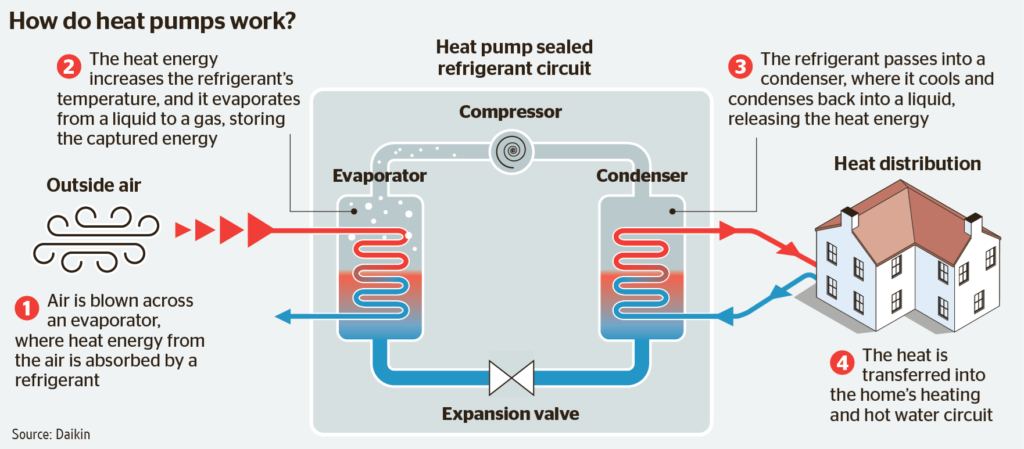Why choose an air source heat pump?
Up until recently, many of us had no idea what an air source heat pump actually is or how it works, but with all the talk of moving from gas to electric it’s hard not to be interested.
The benefits of more efficient, low-carbon buildings for consumers are clear: smarter, better performing buildings, reduced energy bills and healthier, more comfortable environments. Studies indicate that more energy efficient properties typically have a higher value than less efficient ones.
In addition, lowering a buildings carbon footprint through retrofitting (which includes proper insulation measures and installing new heating technology) will also help the economy grow by creating new green jobs withing the building sector. Read more on the progress of the Retrofit GM Taskforce.
Let’s first tackle why the preference to use electricity, especially with the fuel price hikes that we are all suffering right now. Electricity can be produced from renewable energies, which could include generating energy at home through solar panels. This results in a lower carbon footprint with fewer emissions and cleaner air – a win-win proposition helping to shape a greener, cleaner region. (Don’t forget Greater Manchester is aiming to be carbon-neutral by 2038!)
Domestic air source heat pumps (ASHP) can be powered by electricity and are used to heat your home and water. They have been used across Europe for many years but are now only really starting to take-off here. They look similar to an air conditioning unit often seen outside shops. With technological developments in recent years, they are now more efficient than ever before and so more consumer friendly and attractive as a home heating option.
Here’s the science bit on how they work:

An air source heat pump can be three to four times more efficient than a gas boiler, potentially saving you money on heating bills as they give out a lot more heat than the electricity they use to run.
While the Government is committed to moving energy taxes from electricity to gas, currently electricity is more expensive than gas. The higher heat pump efficiency means that the running costs often work out similar, and if an old and inefficient fossil fuel system is being replaced, bills could potentially reduce greatly. Read more at Energy Saving trust
There are some financial incentives currently available (until mid-2022) to assist homeowners towards the cost of installing Heat Pumps:
- In Greater Manchester, eligible residents can access funds up to 31st March 2022 via Green Homes Grant.
- There is also the recently announced National Heat Pump Fund, the Boiler Upgrade Scheme, where residents, regardless of income, can receive £5,000 towards the cost of a heat pump install from April 2022-25 for more information see Heat and buildings strategy – GOV.UK (www.gov.uk)
Soon we will start to see a transition in our homes that focuses on reducing energy bills and improving comfort by keeping the warmth inside. If you’re still confused about how to future-proof your home, please take a look at our air source heat pump myth buster.



